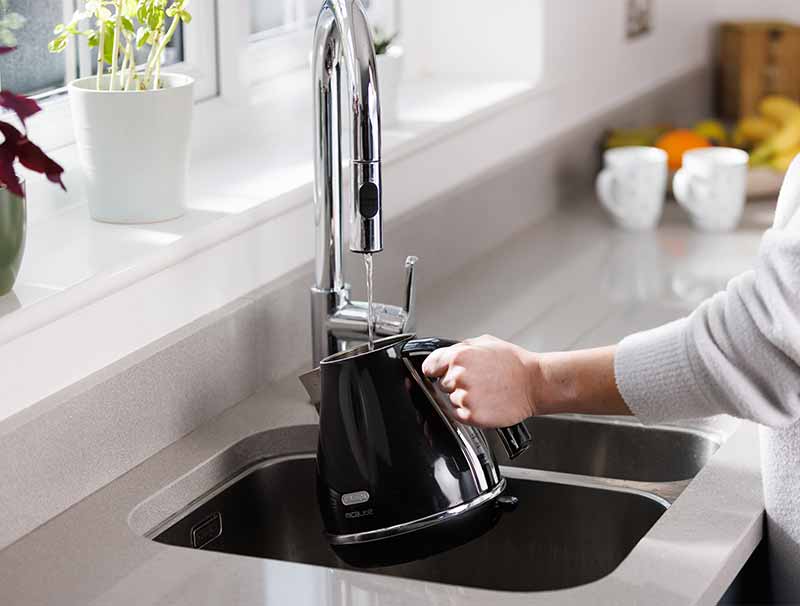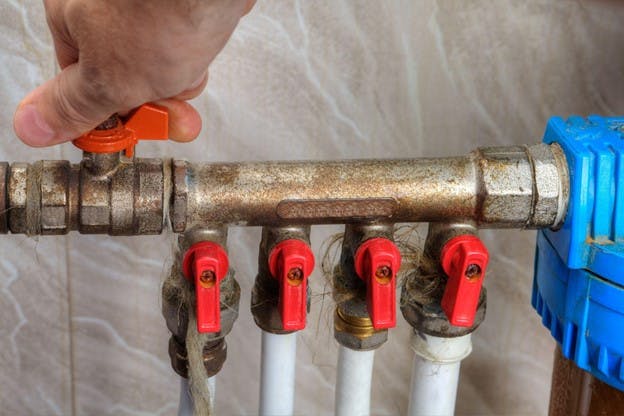Practical Remedies for Handling Low Water Pressure in Your Home
Practical Remedies for Handling Low Water Pressure in Your Home
Blog Article
Just how do you really feel with regards to 9 Reasons for Low Water Pressure in Your House?

Low water stress in your home can be a frustrating trouble, impacting every little thing from showering to washing dishes. If you're experiencing weak water circulation, there are a number of feasible causes and solutions to discover. In this guide, we'll go over typical reasons for low water stress and sensible actions to deal with the concern efficiently.
Introduction to Low Tide Stress
Low tide pressure takes place when the flow of water from your faucets, showers, and various other components is weaker than normal. This can make everyday jobs more tough and much less effective. Understanding the reasons for low tide stress is crucial to locating the best service.
Usual Sources Of Low Water Pressure
Pipeline Obstructions
With time, pipes can come to be obstructed with natural resource, debris, or debris, limiting the flow of water. This is an usual issue in older homes with galvanized steel pipelines.
Deterioration
Rust within pipes can bring about leaks and minimized water stress. Rust buildup can restrict water circulation, particularly in maturing plumbing systems.
Faulty Stress Regulators
Stress regulators are accountable for preserving regular water pressure in your house. If they malfunction, it can cause low tide stress or irregular flow throughout your house.
Metropolitan Water System Issues
Often, the issue exists outside your home. Metropolitan supply of water problems, such as main line leaks or upkeep job, can briefly lower water pressure in your location.
How to Identify Low Tide Stress
Examining Taps and Components
Start by testing the water pressure at various faucets and fixtures throughout your home. If the issue is isolated to details areas, it may suggest local issues.
Examining Pipelines
Inspect noticeable pipelines for signs of leakages, deterioration, or obstructions. Take note of any uncommon sounds, such as knocking or rattling pipes, which can indicate problems within the plumbing system.
Consulting with a Plumber
If you're incapable to pinpoint the root cause of low tide stress, think about hiring an expert plumber to carry out a comprehensive inspection. They can determine underlying concerns and advise proper options.
Do It Yourself Solutions to Deal With Low Water Pressure
Cleaning Aerators and Showerheads
Natural resources can build up in aerators and showerheads, lowering water circulation. Get rid of and cleanse these components consistently to boost water stress.
Flushing Water Heater
Sediment accumulation in the water heater can limit circulation and reduce effectiveness. Purging the container periodically helps eliminate debris and keep optimal performance.
Examining Stress Regulator
Make sure that the stress regulator is functioning correctly. Adjusting or changing the regulator can help recover appropriate water pressure throughout your home.
Clearing Up Clogs in Piping
For minor clogs, attempt utilizing a plumbing serpent or chemical drainpipe cleaner to clear blockages in pipes. Beware when utilizing chemicals and adhere to safety standards.
When to Call a Specialist Plumber
If DIY initiatives fail to resolve the concern or if you suspect significant plumbing problems, it's best to seek help from a licensed plumber. They have the knowledge and tools to deal with complex issues securely and successfully.
Safety Nets to Preserve Water Stress
Routine Upkeep
Set up regular upkeep for your plumbing system to stop problems such as rust, leakages, and clogs. Dealing with small troubles early can aid avoid even more substantial fixings later on.
Setting Up a Stress Booster
Think about setting up a stress booster pump to boost water stress in locations with regularly low flow. This can be specifically helpful for multi-story homes or residential or commercial properties with high-demand fixtures.
Monitoring Water Usage
Bear in mind water use habits and stay clear of ill-using the plumbing system. Simple changes, such as staggering showers and washing loads, can help preserve appropriate water stress.
Verdict
Managing low water stress can be irritating, however identifying the underlying causes and implementing ideal options can restore ideal flow throughout your home. Whether it's cleansing aerators, checking pipes, or consulting with a plumber, taking positive steps can make sure a constant supply of water for your day-to-day needs.
FOUR WAYS TO FIX LOW WATER PRESSURE NOW
Turning on a shower or faucet only to find the water comes out in a sad, slow drizzle is never a good feeling. How exactly are you supposed to wash a pan or take a quick shower when it takes 10 minutes just to rinse off a little soap? The good news is that when your water pressure is bad, there's always a cause: typically one that can be easily fixed. Here are some of the most common causes of low pressure and what you can do to fix the issue:
DEBRIS AND MINERAL DEPOSIT BUILDUPS
If you notice low water pressure from just one or two of the fixtures in your house, the problem likely has to do with debris buildup. Water is full of minerals and other debris, all of which can accumulate in your pipes and on your fixtures. This can cause a blockage that affects how much water flows through. To fix this, try filling a small plastic bag with white vinegar, and use a rubber band to hang it around your showerhead or faucet. Let the head of the fixture soak for a few hours, and the vinegar should loosen the deposits.
WATER LEAKS
Leaks are another common cause of low water pressure. If water is flowing out of your plumbing through a hole or crack before it can reach your fixture, the pressure coming out of the faucet or showerhead will be lower. A plumbing professional is your best bet for finding and repairing a leak in your water supply pipes.
Leaks are another common cause of low water pressure. If water is flowing out of your plumbing through a hole or crack before it can reach your fixture, the pressure coming out of the faucet or showerhead will be lower. A plumbing professional is your best bet for finding and repairing a leak in your water supply pipes.
FOUR WAYS TO FIX LOW WATER PRESSURE NOW
Turning on a shower or faucet only to find the water comes out in a sad, slow drizzle is never a good feeling. How exactly are you supposed to wash a pan or take a quick shower when it takes 10 minutes just to rinse off a little soap? The good news is that when your water pressure is bad, there's always a cause: typically one that can be easily fixed. Here are some of the most common causes of low pressure and what you can do to fix the issue:
DEBRIS AND MINERAL DEPOSIT BUILDUPS
If you notice low water pressure from just one or two of the fixtures in your house, the problem likely has to do with debris buildup. Water is full of minerals and other debris, all of which can accumulate in your pipes and on your fixtures. This can cause a blockage that affects how much water flows through. To fix this, try filling a small plastic bag with white vinegar, and use a rubber band to hang it around your showerhead or faucet. Let the head of the fixture soak for a few hours, and the vinegar should loosen the deposits.
WATER LEAKS
Leaks are another common cause of low water pressure. If water is flowing out of your plumbing through a hole or crack before it can reach your fixture, the pressure coming out of the faucet or showerhead will be lower. A plumbing professional is your best bet for finding and repairing a leak in your water supply pipes.
Leaks are another common cause of low water pressure. If water is flowing out of your plumbing through a hole or crack before it can reach your fixture, the pressure coming out of the faucet or showerhead will be lower. A plumbing professional is your best bet for finding and repairing a leak in your water supply pipes.
A VALVE ISSUE
If you have low water pressure throughout your home, check your main shut-off valve to make sure it's completely open. You may also want to see if there's a pressure-reducing valve installed. If there is, have a plumber help you adjust the settings to get the pressure you're looking for.
OTHERS USING WATER
Believe it or not, your low water pressure could be caused by your neighbors. If you notice low pressure at certain times of day, it may be because you and the people living next to you have similar schedules - when everyone is showering at the same time, the pressure will be lower in every home. Low pressure throughout the neighborhood may also be caused by an issue with your municipal water supply. If that's the case, call the supplier to see if they're working on the issue.
https://www.rotorooter.com/blog/water-leaking/low-water-pressure-fixes/

I am very enthusiastic about 9 Reasons for Low Water Pressure in Your House and I'm hoping you liked the new article. Sharing is good. You never know, you could be doing someone a favor. Thanks for being here. Revisit us soon.
Click Here Report this page